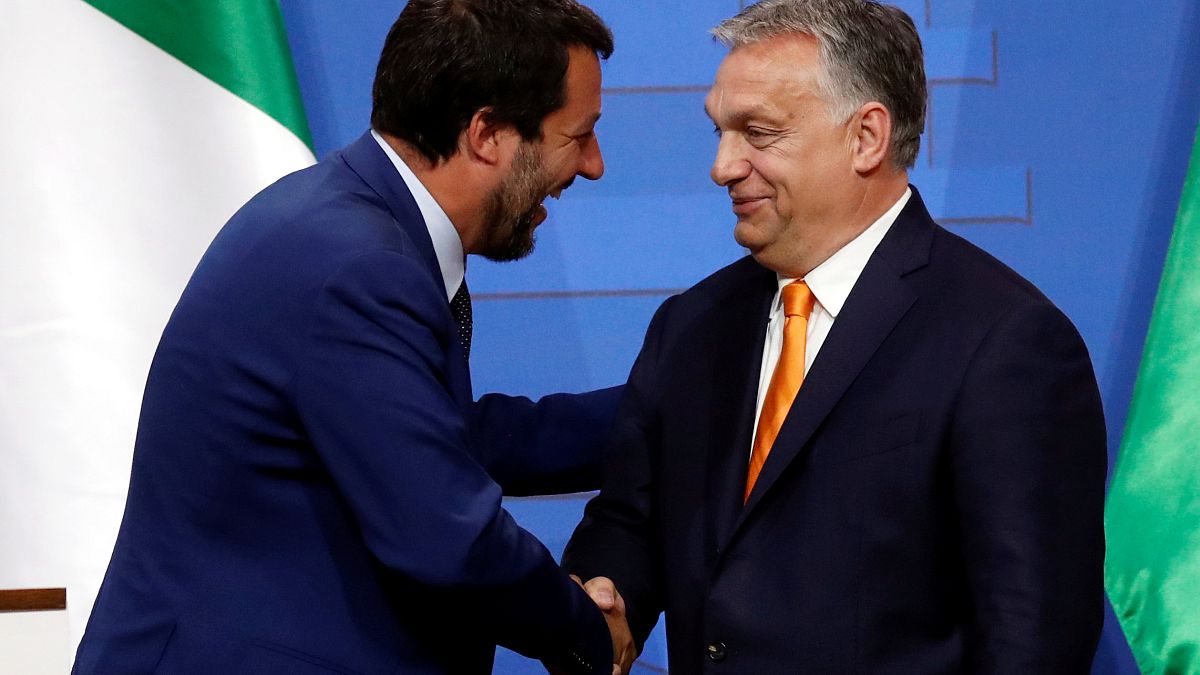With Eurosceptics holding 23% of the new assembly, talks of new groupings are underway.
Provisional results show that more than 170 seats (23%) will be allotted to Eurosceptic parties in this European Parliament.
The one true commonality of all these Eurosceptic parties is implicit in the name itself - scepticism of the European Union. Stances that stretch farther than EU membership however, drive each of the parties in their respective nations, but are not necessarily shared.
Potential alliances and possible divisions:
Far-right MEP Salvini aims to unite the far-right by building a common group of 150 lawmakers. The deputy prime minister in Italy said on Monday that he has already discussed the matter with spearheads of the far-right Marine Le Pen, Nigel Farage, and Viktor Orban.
Euroscepticism drove the far-right into power, but they will have to draw other parties to their cause in order to change EU policy. To do so, Eurosceptics are going to have to unite on a variety of issues, from asylum to relations with Russia.
Orban, whose party has previously been suspended from the EPP, is said to be most likely to leave the group and join Salvini. Issues of asylum however, are divisive enough to potentially dissolve this relationship. Italy's calls to distribute asylum seekers among EU states have long been opposed by Eastern Europe. In Hungary, Orban's party has won 13 seats in the assembly with 52% of the Hungarian vote.
Poland's PiS have said that they are ready for alliance talks with Salvini's League. The Russian issue however, may hinder this unification.
PiS in Poland are reluctant to accept Russian relations with open arms and are set to hold a significant 23 seats in the European Parliament. The League in Italy, and the National Front in France however, are set to maintain friendly relations with Russia, complicating this European nationalist bloc.
Arguably the most successful Eurosceptic, Nigel Farage will lead the largest party in the new parliament. If Britain leaves the EU as planned on October 31 however, all British MEPs will have to leave the assembly.
Eurosceptic parties have risen from 20% to 23% in the European elections. In order to disrupt EU policy, the parties need to form a collective group that reflects their far-right affiliations. This affiliation however, coupled with stubborn intrinsic ideals of nationalism and self-governance, may prove to be exactly what prevents such an alliance.
